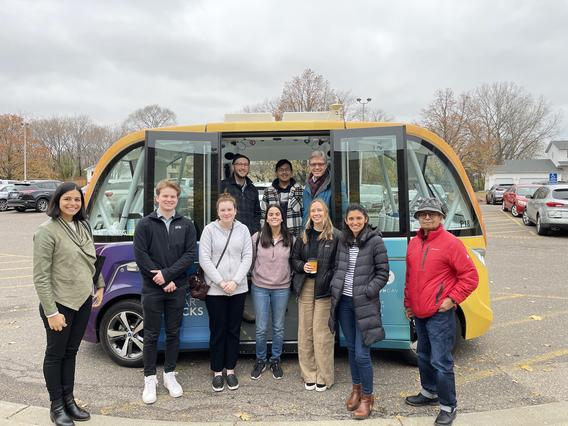
Technological innovations in transportation create new economic opportunities. They also raise challenges for policymakers, who need to keep informed of the changes, their potential impacts, and the policy and legal implications.
TPEC researchers study the implications of changing transportation technology and recommend actions for policymakers. Their aim is to ensure that the full economic benefits from transportation innovation are realized—thus enhancing Minnesota's economic competitiveness.
Connected and Automated Vehicles
One particular innovation—vehicle automation—is potentially transformative and disruptive. The widespread use of automated vehicles could dramatically alter transportation infrastructure, land-use patterns, safety, jobs, accessibility, much more.
As momentum for connected and automated vehicles continues to build in Minnesota, TPEC researchers are working to understand how the technology could serve transportation-disadvantaged communities. Automation could provide greater mobility and equity for many people, but public engagement is essential to ensure all user needs are understood and addressed. TPEC research and engagement efforts explore the equity, legal, and policy dimensions of vehicle automation.
More about TPEC activities related to automated vehicles
Telecommuting
Telecommuting became the norm for many people during the COVID-19 pandemic. The remote work trend is presenting major challenges and opportunities for both employers and employees in a variety of areas, such as equity, staff recruitment and retention, legal issues, accessibility, and parking.
TPEC researchers are studying these trends and impacts—and how telecommuting is shaping the future of transportation. Their work focuses on the equity impacts of telecommuting, including disparities by income, gender, race, and educational attainment.